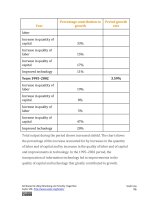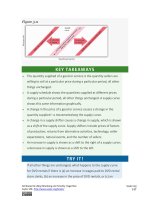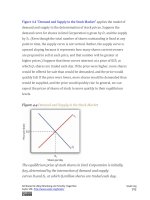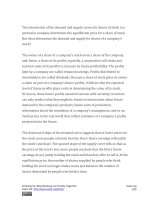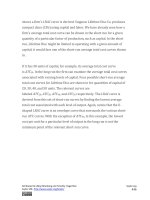Authors libby rittenberg 831
Bạn đang xem bản rút gọn của tài liệu. Xem và tải ngay bản đầy đủ của tài liệu tại đây (424.07 KB, 1 trang )
Supreme Court ruled in 1995 that individual states could not impose term
limits on members of Congress. If such limits are to prevail at the federal
level, a constitutional amendment will be required.
Arguments against the term limits approach include the fact that term
limits automatically remove experienced legislators who could be very
effective. They also restrict voter choice.
A second type of reform effort is a proposal that campaigns for seats in
Congress be federally funded. If candidates did not need to seek funding
from special interests, the influence of these groups would wane.
KEY TAKEAWAYS
Public interest theory examines government as an institution that
seeks to maximize public well-being or net social benefit. It assumes
government will seek the efficient solution to market failure
problems.
Public choice theory assumes that individuals engage in rent-seeking
behavior by pursuing their self-interest in their dealings with the
public sector; they continue to try to maximize utility or profit.
It may be rational for eligible voters to abstain from voting, according
to the public choice theory.
Public choice theory suggests that politicians seeking reelection will
try to appeal to coalitions of special-interest groups.
TRY IT!
Here is a list of possible explanations for government programs and
policies. In each case, identify whether the explanation reflects the
Attributed to Libby Rittenberg and Timothy Tregarthen
Saylor URL: />
Saylor.org
831
